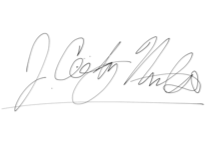The other morning, while attending to the busy-ness of emails, I received an email from a trusted colleague. Checking in, as she often does, she asked at the end of the email, “When are we going to be able to call you the Rev. Dr. J. Cody Nielsen?” And all of sudden I remembered not only that pesky dissertation, but also the duality of the work I am in.
I am an ordained United Methodist clergy, agnostic to an extent, and deeply tied to higher education, even pursuing my Ph.D. in it right now. As a Ph.D. candidate, the last 4 years have exposed me to student development theories, outcome-based methodologies, and extensive understanding of research. And this education has exposed me to a reality: because of my background in religious organizations while also working in higher education, I seem to live on two sides of a proverbial aisle.
In his book A Hidden Wholeness: The Journey Toward an Undivided Life, Parker Palmer discusses the need for us to bring our lives and vocations into a union with one another. He explores how we often live disassociated lives that prevent us from being our true selves anywhere. I frequently reflect on that struggle as a higher education professional who was trained as a religious leader. In many ways, it feels as if I am supposed to create two parallel but non-intersecting careers. My experience in leadership of two religious based non-profits does not mean much to campus administrators. My experience in higher education, the importance of student outcome based perspectives and the need to be engaged in the larger co-curricular structure of the university, has at times been met by resistance by religious based professionals.
Many of us are often are made to feel as though we should live in multiple worlds. Your work and your home life are separate, your way of being in the world as a father who is nurturing and caring is different than your corporate CEO side who is managerial and decisive. There are certainly many roles we each are meant to play. But when does it become too much? Why is our answer to how to be in the world often based less on our inner truths than on the context we are in? Can we ever be our true selves, or we at risk that we will lose sight of our true self in the midst of our compartmentalization and fragmentation?
We need to grow beyond this inner and outer fragmentation. We must no longer be only tied to the outward facing ways in which others tell us to be, but rather to call forth within ourselves the very essence of our being in public. Those values we hold in tension might just be the key to authentic learning from one another and a way toward greater wholeness in the world. In approaching this challenge within myself, I may come to offer something greater into the world around me and stop living this divided life.
Maybe this story is just about me. But maybe, somewhere in here, you will ask yourself how you have been living a divided life and how you might bring yourself into a more whole identity and share yourself with all those around you. It is not only you that will benefit, but the communities and organizations around you as well.
For more musings, we’ll see you next week.












